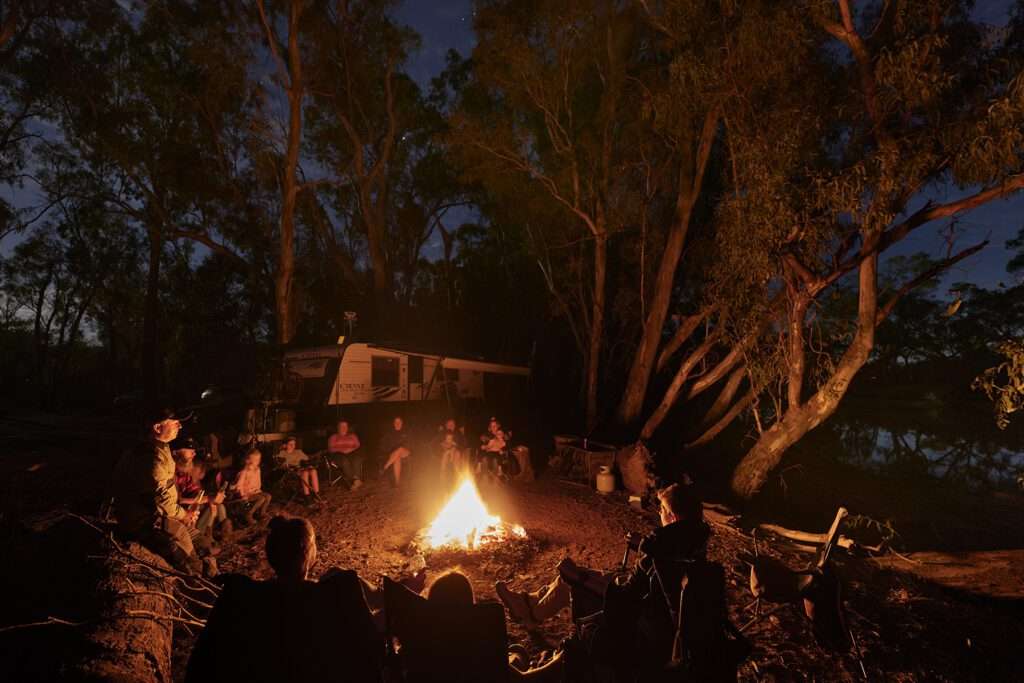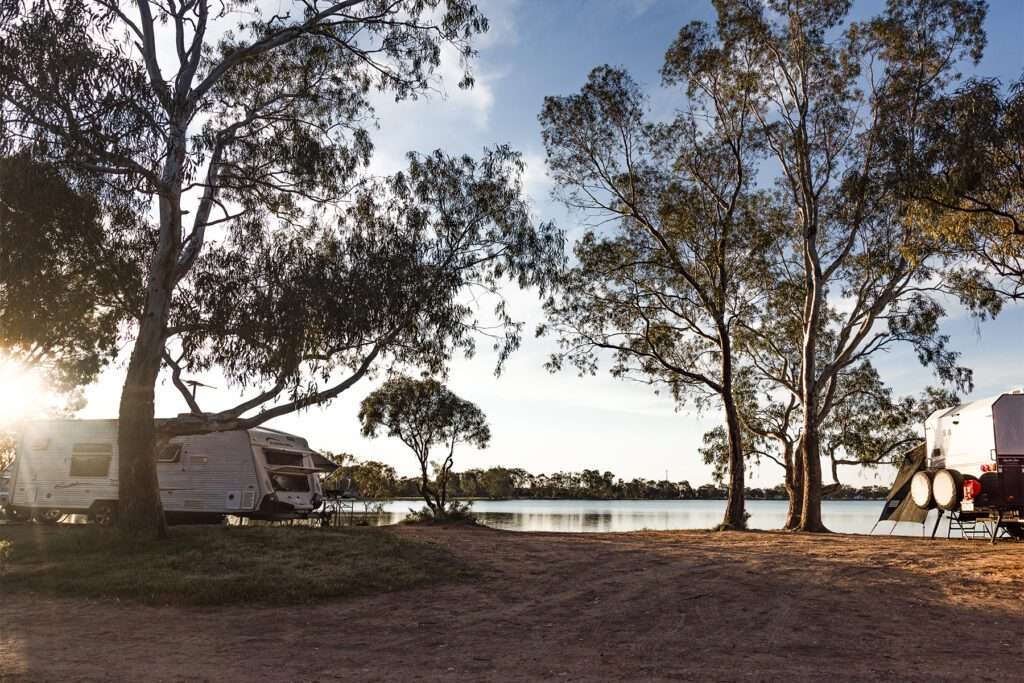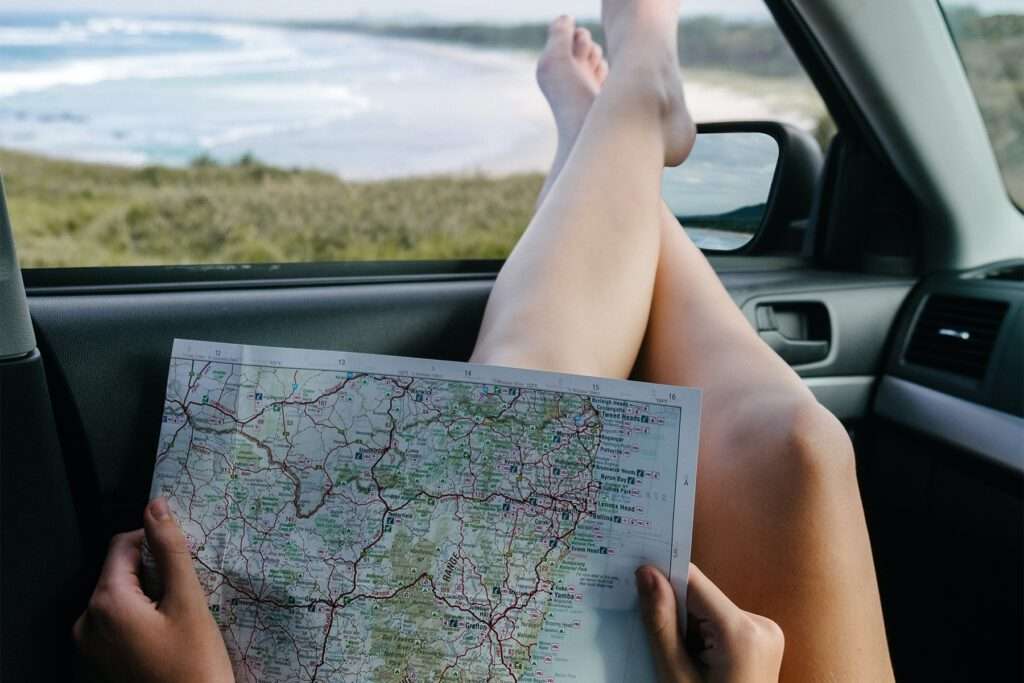Phone, keys, wallet: let’s go, right?! Not quite…while ‘PKW’ will get you out the door, there’s a few more things to add to that list if you want to be prepared for any scenario when you’re on the road. Let’s put our scout uniforms on and run through the 20 essential items you need for your car emergency kit in Australia.
20 essential items for a car emergency kit in Australia
Non-negotiables
- Owner’s manual — This is a set-and-forget item – leave it in your glovebox and don’t look back! You never know when you might need one of those handy fuse troubleshooting tips or to check the best tyre pressure for towing a caravan.
- Spare tyre and jack — Check on your spare tyre from time to time to make sure it’s properly inflated and in good condition. While Roadside Assistance is usually the first port of call, if you’re further out of town you may need to change a flat yourself, so keep the jack and any safety equipment clean and clear of obstruction.
- Jumper leads — Flat batteries happen to the best of us, and never at a convenient time! Check your owner’s manual for advice on the best set-up for your vehicle, and pack a set of surge-protected jumper leads in the boot. Jump-starting is an underrated automotive skill, but isn’t without risk, so check out our handy guide for next time you run into battery trouble (or come to the rescue) here. Get to your local auto parts or hardware store to find a pair for your vehicle.
- Basic multi-tool — You just don’t realise how handy this one will be until you’ve got it sitting in the glovebox. Can’t open that packet of lollies? Got a hang-nail? How are you going to uncork that fancy bottle of plonk when you get to the AirBnB? Relax and reach for your multi-tool. Starting at around $15, a simple multi-tool is friendly to the budget and super handy in any number of situations.
- First-aid kit — From a quick blister-patch when you arrive at a wedding in those new shoes to pulling out a splinter with tweezers – a basic motoring-specific first aid kit can slip easily under a seat or in the glovebox or boot until you need it.

Safety and survival
- Fire extinguisher — If you’re on the road a lot, it’s worth considering purchasing an Australian Standards-approved fire extinguisher for your vehicle. These are typically mounted in the front passenger footwell, and should be frequently inspected for safety. Fire extinguishers are mandatory in caravans and in other circumstances, including dangerous goods vehicles – check your local authority for guidance.
- Emergency hammer — Like the fire extinguisher, this is a ‘you won’t need it until you really need it’ items. Road safety experts recommend that all drivers have an emergency hammer safely stored in the glovebox in case of the need to escape from a submerged vehicle. This might sound extreme, but recent widespread flooding is a good reminder that nobody plans to be in an emergency situation; and a $5 hammer in the glovebox might just save your life.
- Torch — A basic torch will come in handy if you’re low on phone-charge and stuck by the side of the road at night. It’ll make the trek to the roadside for a toilet-stop a little easier and help you identify the culprit if you cop a flat tyre in the dark.
- Duct tape. What can’t duct tape do? I’ll wait…
- Water and non-perishable snacks — Always carry excess drinkable water with you when you travel, preferably stored in water bladders or stainless steel containers to keep it fresh and clean. Non-perishable snacks like high-protein muesli bars and lollies or trail mix will come in handy if you’re stranded for an extended period of time (or if someone gets hangry in the backseat…).

Comfort
- Wet wipes — Once you start carrying wet wipes wherever you go, you’ll never turn back. Grubby hands? Hot face? Food or drink spill? Sticky bug on the windscreen? Just noticed that your shoes are grubby before your job interview?
- Rain protection — Stash a brolly and a couple of those handy lightweight reusable ponchos in the boot and thank me later. Whether you’re changing a tyre in the pouring rain or making a quick dash to the shops, protection against the elements is key.
- Sun protection — Speaking of elements, that umbrella will come in handy if you break down on a hot day, too. While storing sunscreen in the car long term isn’t a great idea (its effectiveness will wane with prolonged exposure to high temperatures), we recommend popping a handy 50mL bottle on your keychain for easy access. Sun protection is an essential inclusion in any emergency car kit for Australia!
- A towel — Not just a suggestion for the nerds who love the Hitchhiker’s Guide to the Galaxy, a towel has great practical value. It can keep you dry and warm, or act as a handy rag if you need to get your hands greasy.
- A blanket — A simple picnic rug or blanket laid on the bottom of your boot gives you a nice layer to protect your upholstery and will be right on hand when you drive past the perfect picnic spot. If you break down on a hot day and need to leave your vehicle, a blanket will offer some comfort while you wait for assistance.
The small details
- Phone charger — Chances are you’re rarely leaving home for any period of time without it anyway, but it never hurts to be reminded! Keep a spare phone charging cord hidden safely in your glovebox just in case.
- Paper and pen — Just in case you need to leave a note or exchange details in case of an accident or emergency (or play tic-tac-toe in the backseat during ‘phones-off time’).
- Road map — Yes, a paper map! If you’re headed somewhere remote or on unfamiliar roads, have a Plan B in place in case your in-vehicle GPS or mobile phone is out of range. Whether it’s a traditionally-printed road map, or a few dot points jotted down to trigger the memory, it’s a good failsafe.
- Spare change — Don’t store this in your car if you leave it unattended, but travelling with spare change is handy in case you find yourself somewhere that doesn’t accept cards.
- Tissues — Bless you! A packet or two of these in the glovebox or seat pocket will keep sniffles at bay and come in handy if there’s no toilet paper at the last rest-stop for the next 100 kilometres.

We’ll help you be prepared
Now that you know what to include in an emergency car kit for an Australia road trip, plan ahead and book your car in for a service with us before you hit the road. We’ll give your car a thorough safety-check in line with the VACC’s accredited Critical Safety Check program and keep you on the move with our premium service experience.
Need to get somewhere while your vehicle is being serviced at Cox Auto? As well as a fleet of courtesy cars, we offer a complimentary pick up and drop off service via Uber within 10 km of our centre in South Melbourne.
Have we missed anything in our car emergency kit checklist (and no, wine and chocolate don’t count!)? Share your essential kit tips with us on our Facebook page and tell us all about your adventures next time you’re in for a service.



